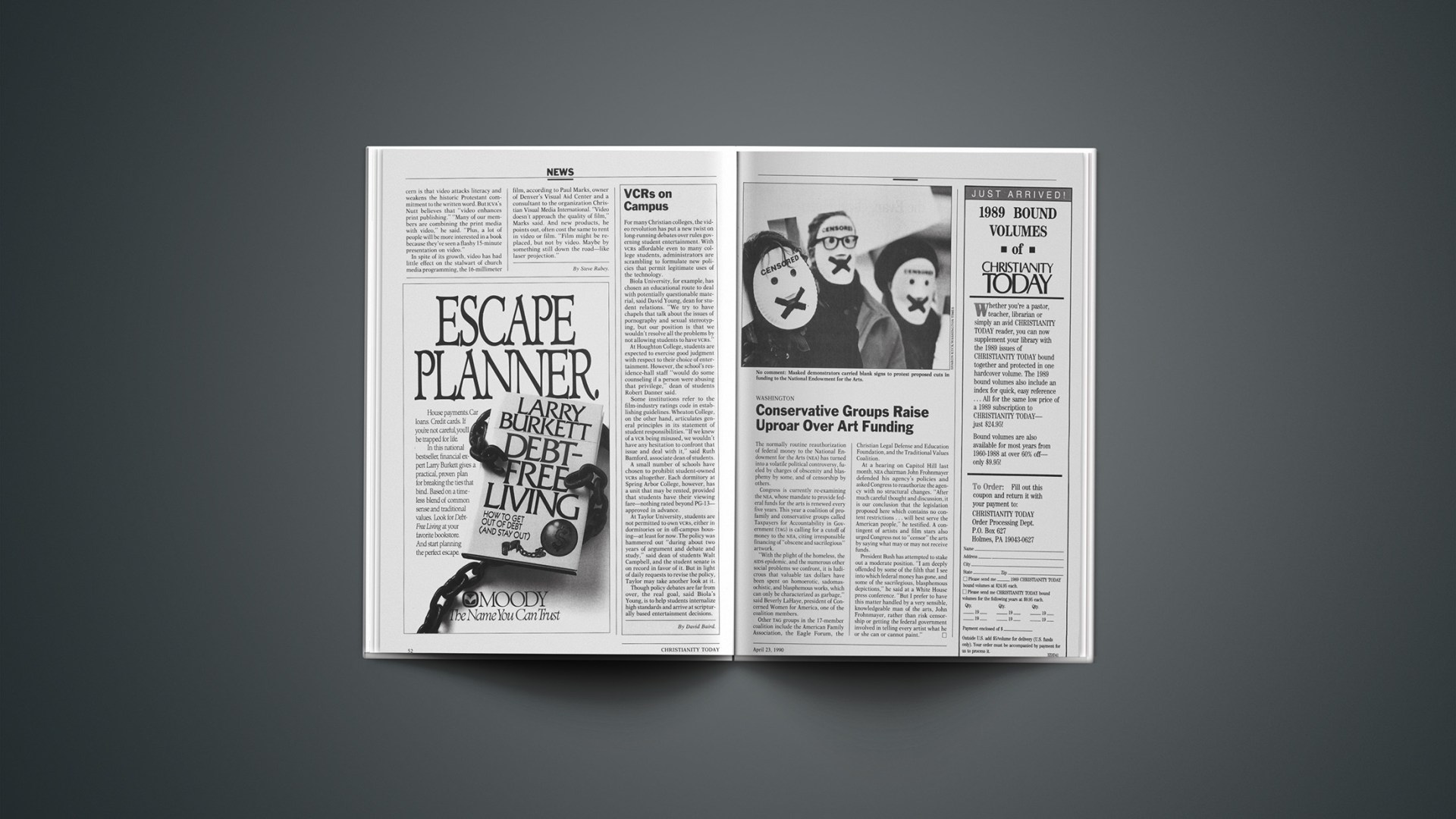The normally routine reauthorization of federal money to the National Endowment for the Arts (NEA) has turned into a volatile political controversy, fueled by charges of obscenity and blasphemy by some, and of censorship by others.
Congress is currently re-examining the NEA, whose mandate to provide federal funds for the arts is renewed every five years. This year a coalition of profamily and conservative groups called Taxpayers for Accountability in Government (TAG) is calling for a cutoff of money to the NEA, citing irresponsible financing of “obscene and sacrilegious” artwork.
“With the plight of the homeless, the AIDS epidemic, and the numerous other social problems we confront, it is ludicrous that valuable tax dollars have been spent on homoerotic, sadomasochistic, and blasphemous works, which can only be characterized as garbage,” said Beverly LaHaye, president of Concerned Women for America, one of the coalition members.
Other TAG groups in the 17-member coalition include the American Family Association, the Eagle Forum, the Christian Legal Defense and Education Foundation, and the Traditional Values Coalition.
At a hearing on Capitol Hill last month, NEA chairman John Frohnmayer defended his agency’s policies and asked Congress to reauthorize the agency with no structural changes. “After much careful thought and discussion, it is our conclusion that the legislation proposed here which contains no content restrictions … will best serve the American people,” he testified. A contingent of artists and film stars also urged Congress not to “censor” the arts by saying what may or may not receive funds.
President Bush has attempted to stake out a moderate position. “I am deeply offended by some of the filth that I see into which federal money has gone, and some of the sacrilegious, blasphemous depictions,” he said at a White House press conference. “But I prefer to have this matter handled by a very sensible, knowledgeable man of the arts, John Frohnmayer, rather than risk censorship or getting the federal government involved in telling every artist what he or she can or cannot paint.”










